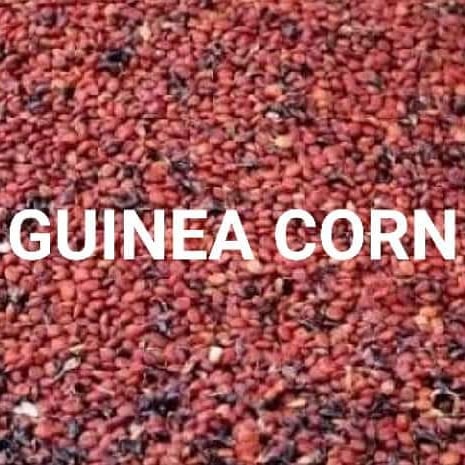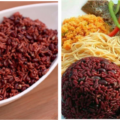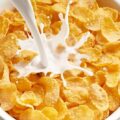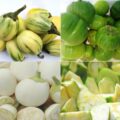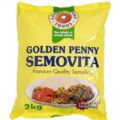Guinea corn is a nutrient-rich grain that is often ground into flour to make bread, porridge and pancakes. Including it in your diet offers a number of nutritional and therapeutic benefits. A 1/4 cup serving of dry guinea corn contains 163 calories. Compared to other grains, guinea corn contains about the same amount of calories. For example, a 1/4 cup serving of dry oat groats contains 160 calories; 1/4 cup of dry barley is 140 calories.
Guinea, corn also known as Sorghum is a major nutritional energy inducer because it contains cellulose and protein. Guinea corn offers some proteins, vitamins and minerals that are unique and very essential for human growth and development. In West Africa, guinea corn is widely used in complementary feeding of babies and children because it is rich in micronutrients such as vitamins B, copper, iron, potassium and magnesium.
Health Benefits of Guinea corn
Promote Colon Health
Most colorectal cancers start as a growth on the inner lining of the colon or rectum. These growths are called polyps. Some types of polyps can change into cancer over time (usually many years), but not all polyps become cancer. The chance of a polyp turning into cancer depends on the type of polyp it is. Overall, the lifetime risk of developing colorectal cancer is: about 1 in 23 (4.4%) for men and 1 in 25 (4.1%) for women. A number of other factors can also affect your risk for developing colorectal cancer. Eating a high-fiber diet is linked with a reduced risk of colorectal cancer, according to new research that analyzed 25 different studies. Total fiber intake, as well as fiber from whole grains and from cereals, was most strongly linked with a reduction in colorectal cancer risk, the researchers say. Eating guinea corn helps improve your digestive health as the high content of dietary fiber in it soothes various digestive problems like constipation, diarrhea, and bloating.
Good Source of Energy
Guinea corn is an excellent source of energy for your body. They provide energy all right, but because the carbohydrates are the complex kind, they generate a steady source of fuel that comes on gradually and stays with you throughout the day. Whole grains like guinea corn also contain valuable minerals, vitamins, phytonutrients, and fiber; many are rich in protein, too.
Unique Protein content
According to Harvard Health Publishing, the recommended daily allowance for protein is 0.8 grams (g) per kilogram of body weight. Multiply your weight in pounds (lb) by 0.36 — that’s how many grams of protein you should be getting each day at a minimum. Therefore, if you weigh 150 lb, you’d aim for 54 g of protein daily. To think of it another way, protein should make up between 10 and 35 percent of your daily calorie intake. Your body use protein to make enzymes, hormones, and other body chemicals. Protein is an important building block of bones, muscles, cartilage, skin, and blood. Along with fat and carbohydrates, protein is a “macronutrient,” meaning that the body needs relatively large amounts of it. Guinea corn is a perfect diet because it’s incredibly rich in protein, which is the primary building material for your body.
Low Cholesterol food
LDL cholesterol is often called the “bad” cholesterol because it collects in the walls of your blood vessels, raising your chances of health problems like a heart attack or stroke. Trans fats not only increase levels of bad cholesterol, but they also lower levels of good cholesterol. For this reason, they are the most harmful. Guinea corn has been proven to help lower bad cholesterol level in blood, as well as increases the level of good cholesterol, preventing a variety of cardiovascular diseases. Eating whole guinea corn substantially lowers total cholesterol, low-density lipoprotein (LDL, or bad) cholesterol, triglycerides, and insulin levels. With an abundance of protein and fiber, whole grains are also low on the glycemic index, meaning they are absorbed slowly and can help you feel full longer, which in turn will help you avoid that mid-day hunger that leads to unhealthy snacking.
A good Source of Magnesium
Magnesium is the fourth most abundant mineral in the human body. It plays several important roles in the health of your body and brain. However, you may not be getting enough of it, even if you eat a healthy diet. Guinea corn is a good source of Magnesium, a cofactor in more than 300 enzyme systems that regulate diverse biochemical reactions in the body, including protein synthesis, muscle and nerve function, blood glucose control, and blood pressure regulation. Magnesium is required for energy production, oxidative phosphorylation, and glycolysis.
Rich In Manganese
The human body cannot produce manganese, but it can store it in the liver, pancreas, bones, kidneys, and brain. A person usually obtains manganese from their diet. Guinea corn is rich in Manganese which plays crucial a role in the metabolism of nutrients. Manganese helps activate many enzymes in metabolism and plays a role in a variety of chemical processes in your body. It helps with protein and amino acid digestion and utilization, as well as the metabolism of cholesterol and carbohydrates. Manganese helps form an antioxidant enzyme called superoxide dismutase (SOD). Antioxidants shield the body from free radicals, which are molecules that destroy or damage cells in the body. The authors of a 2011 study found that SOD helps break down one of the more dangerous free radicals, called superoxide, into smaller components that are not harmful. In laboratory and animal models, this process could reduce inflammation related to lung pleurisy, inflammatory bowel disease, and psoriasis.
Weight Loss
Did you know that eating whole grains can help fight the battle of the bulge? Though many people are eliminating carbs from their diet to lose weight, there is strong evidence that shows healthy whole grains are the way to go to improve overall health and weight loss. According to The Whole Grain Council, eating a diet rich in whole grains can reduce the risk of stroke by 30-36%; reduce the risk of type 2 diabetes by 21-30%; reduce the risk of heart disease by 25-28%, and provide better weight maintenance. ALSO SEE: Health Benefits of Millet
Side Effects of Guinea corn
Not recommended for individuals Prone to gastrointestinal diseases: High-fiber products such as guinea corn extracted are not recommended for people who are prone to or suffer from gastrointestinal diseases.
Breastfeeding mothers should take caution before switching : For breastfeeding mothers, if you have been eating guinea corn regularly before pregnancy, by all means, continue. But experts advise against suddenly switching to sorghum diet during pregnancy. If you suddenly switch from regular eating of rice to sorghum without giving your body a chance to adapt. This might lead to diarrhea or constipation.
Fortify Guinea corn diet when giving to children: When it comes to children nutrition, guinea corn meals should be fortified with other nutrients. Cereals with a large amount of dietary fiber are usually not suitable for the immature digestive system. Kids older than five years can begin taking a little amount of sorghum. But it is important to observe any reaction by the child.
Food Allergy: Individuals who are allergic or intolerant to guinea corn or its products should avoid eating guinea corn. Symptoms of a food allergy include a raised, itchy red rash, swelling of the face, eyes, lips and tongue, and shortness of breath.

